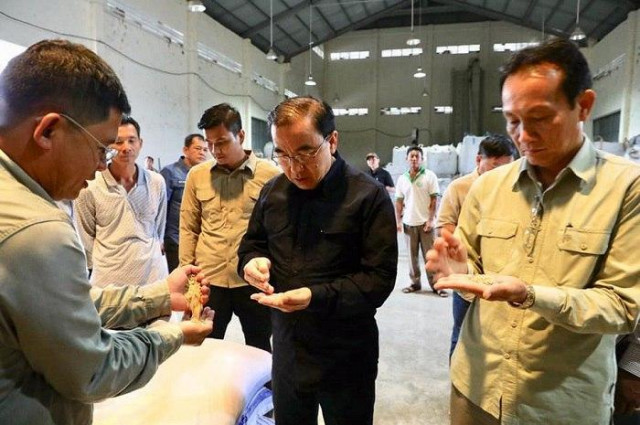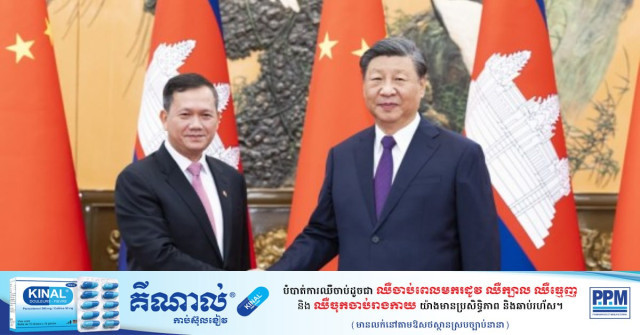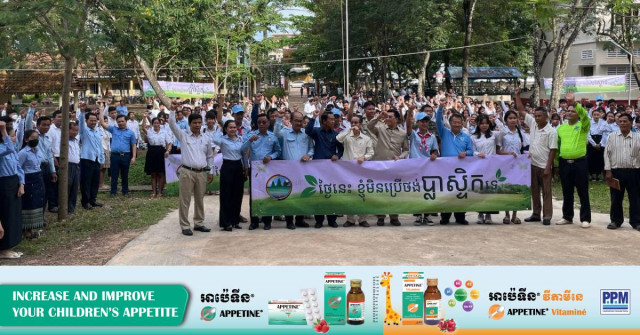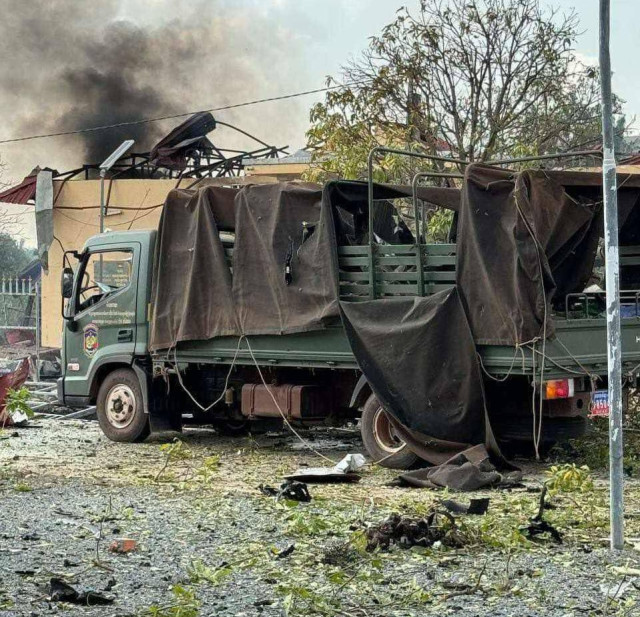Leang Delux: Setting up an Online News Media Reflecting the Best of Journalism
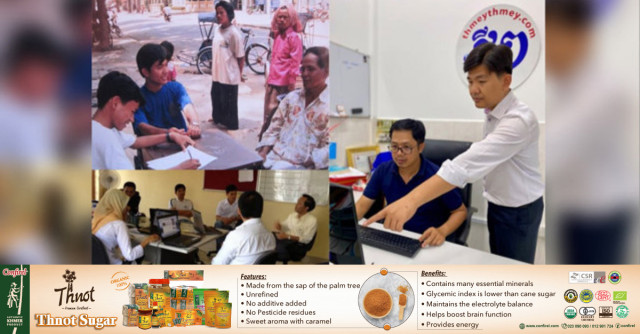
- By Pierre Gillette
- December 31, 2023 10:29 AM
Under the rather wary look of two women passersby, Delux and Vichet, seated around a table put on the sidewalk near the entrance of the National Museum, were interviewing two cyclo drivers. How can an ordinary cyclo driver be of interest to anyone, the two women were no doubt wondering.
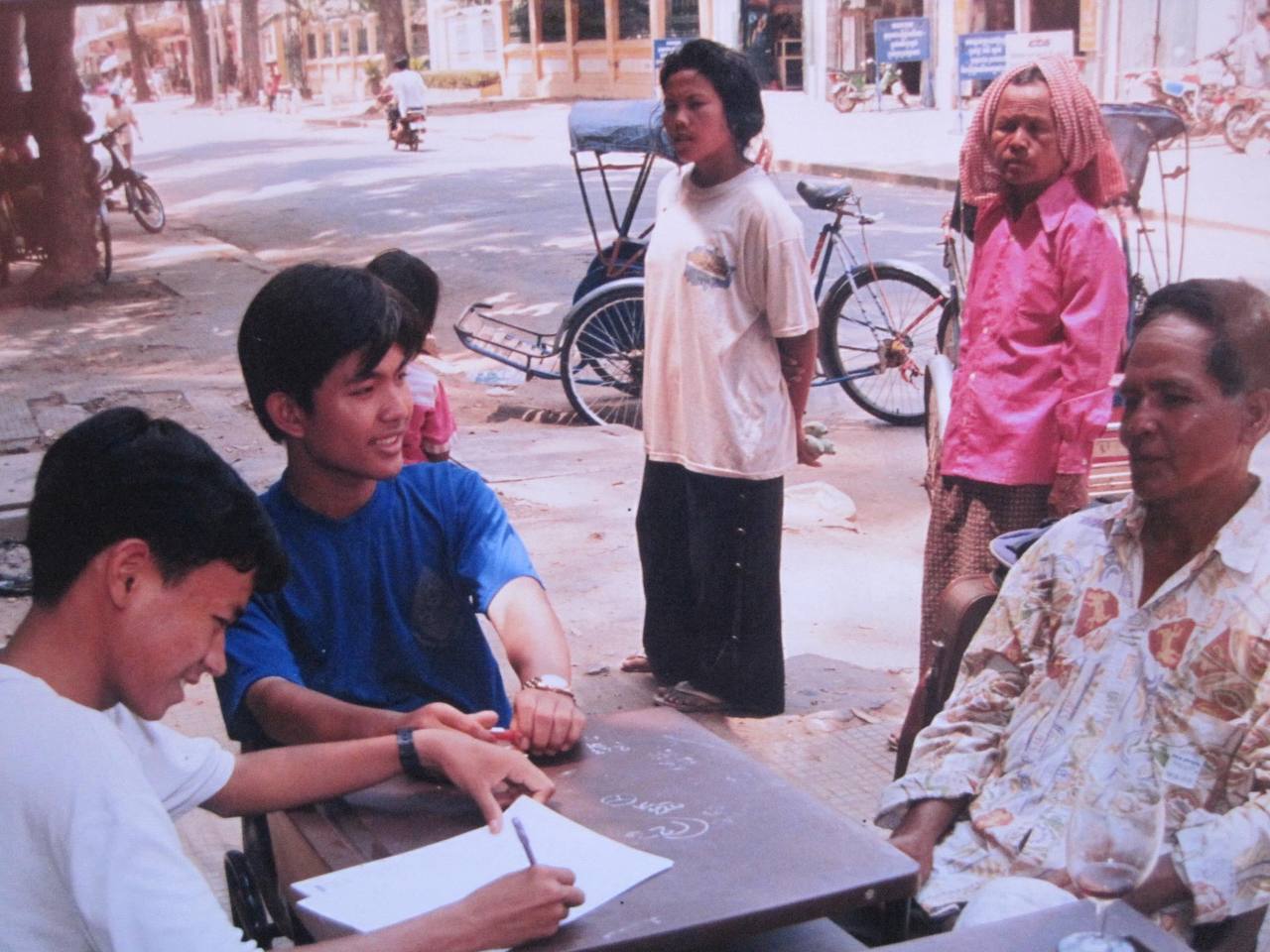
I have the photo of the scene in front of me. This took place in 1998. It was my first time meeting Delux who was then studying in the Department of French at the Royal University of Phnom Penh, majoring in teaching and journalism. I was editor in chief of the French-language newspaper Cambodge Soir and I had become interested in this project of the French Cultural Center—today’s French Institute—in which Delux was taking part and that consisted of having people studying French write the profile of modest persons such as this cyclo driver. This had to do with journalism as well as ethnology and, since during that period in Cambodia the media were paying little attention to ordinary people, only focusing on the powerful, this had seemed of interest to me and I had decided that our paper would pass on the texts submitted by publishing them.
I like this photo because it embodies the very essence of journalism, that is, reaching out to others, to all the others, whether they are humble or powerful, to report their words, their life experience to the public through the media in order to participate in the dialogue in which everyone must be able to take part in society.
Twenty-five years later, the young man with a tranquil attitude that we see in that photo has not put down his pen and has become Leang Delux, a respected figure in the news media and information world who continues in this same spirit of listening and reporting that this photo perfectly reflects.
“In 2000, I completed my studies in the Department of French Studies with diploma in teaching and journalism and, following a two-month internship, I joined the journalist team of Cambodge Soir,” Delux said. “This is where I learned from my French colleagues that journalism did not only amount to politics and reporting politicians’ comments or covering sundry events as was the habit of Cambodian journalists at the time. When doing this work, one has the opportunity to meet people from all walks of life, from all professional backgrounds. We have the opportunity through our stories to have an influence on society. While part of this journalist team, I not only developed reporter’s techniques, but I also learned to think about the ethics of the trade, the meaning and impact of what we write, the context of an event, and so on. One could say that I did my university training there because, during those years, one could not study this anywhere.”
While working on the Cambodian staff of the French broadcast network Radio France Internationale (RFI), Leang Delux was working with two colleagues, Ky Soklim and Pen Bona, on a major project, that of setting up a news media in accordance with international professional standards without the involvement of any foreigner. “Until the end of the 2000s, all internationally-recognized news media--Cambodge Soir, The Cambodia Daily, Phnom Penh Post, RFI, Voice of America (VOA), Radio Free Asia (RFA) and so on—were managed by foreigners,” Delux said. “We thought this was not normal and that Cambodians should have their own media of record.”
The advent of the internet enabled the three journalists to realize this ambition without having to get thousands of dollars while stepping directly into the online information era. Thus was born Thmeythmey.com in 2012.
Hundreds of thousands of stories later, the modest news site produced on a day-to-day basis by a small team led by its three founders and soon joined by Ung Chamroeun who was, like them, a former Cambodge Soir journalist, has become Thmey Thmey Media that manages three news sites—Thmeythmey.com, Thmey Thmey 25 in Khmer, and Cambodianess in English—edits books, holds journalism training programs, produces videos including a series in cooperation with the APSARA Authority, and so on.
At the Thney Thmey Media office, which is a small, three-level functional building, dozens of people—the group employs around 50 people with most of them under 30 years old—are hard at work. “We take young students coming from several universities and who are passionate about the production of information,” Delux said. “Ky Soklim, Ung Chamroeun and I, we spend a great deal of time training our young colleagues. We want to instill our concept of the profession of journalist that involves rigorous processing of information, reflection on the social and educational significance of what we produce, and curiosity.
“Of course, those young people who were virtually born with a smartphone in their hands master all the tools that enable the instant production of videos and contents that will reach in no time hundreds of thousand people through social media,” Delux said.
This ease worries Leang Delux, publisher for the group. “It’s tempting for a young journalist to put together a 3-minute video in which he will be more concerned about taking center stage than about the meaning and interest of what he is relating,” he said. “We must ensure that the production of information does not become a game to collect likes but keeps its primary role, which is to serve the public interest while contributing to political, social and societal debates. Yes, one must know how to write short for these new online vehicles but without excluding long items such as reports, profiles, analysis and even books. For example, I really enjoyed writing a book on Hun Many because this gave me the opportunity to go deeper into Cambodian politics and to look back at numerous events that I had covered as a journalist or at meetings in the context of my work, giving them a new dimension.”
Viewed as a reference media as much by its audience that reaches astronomical peaks during major events such as the SEA Games or the Water Festival than by the diversity of its content, Thmey Thmey has met, according to Leang Delux, its founding objectives. Above all, this gives him, as well as all his fellow adventurers, independence and freedom.
However, he stressed with the worried expression I know well, even if having managed to implement and maintain for more than 10 years a media, having started from scratch, reflects the soundness of the project, the challenges to sustain it are considerable. “We work in a very competitive environment in which competition is very strong and in which technology constantly evolves,” he said. “At the time of Cambodge Soir, we would write a story and that was it. Now, journalists must write, take photos, post videos, and all this at a frenetic pace not to be overtaken by our competitors.”
One other point of concern for Leang Delux, who is executive director of the Club of Cambodian Journalists: the comments at times unpleasant of the authorities towards journalists.
“We are more and more referred to as a threat to social order, as non-professionals and not respecting the ethics of our profession: this is not reassuring,” he said, nonetheless with a hint of a smile. Nearly the same smile as on this photo of 1998, when it all started for him in this field.






